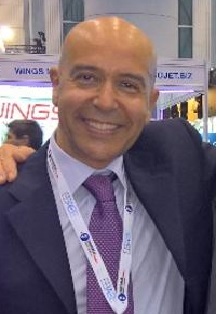See us at MRO Asia Pacific 2025
Aerospace Industry Mulls Force Majeure In Wake Of Tariffs
Details
More Products & Services
Products & Services
Aerospace | Aviation Week Network
Aviation Week Network
https://aviationweek.com/themes/custom/particle/dist/app-drupal/assets/awn-logo.svg
Home - Aviation Group Marketing
Aviation Week Network
120 data points on over 156,000 commercial and business aviation aircraft, including military transports. Discover the most trustworthy resource for the complete aircraft history, plus ad hoc reports, month-over-month trend analysis and details on expected deliveries through 2050.
People

Andrea Rossi Prudente
Aviation Week Network

Becca Balmes
Aviation Week Network

Belinda Tan
Aviation Week Network

Brian Everstine
Aviation Week Network
Editor

Eddie Krankowski
Aviation Week Network
Assistant Manager, Tradeshows

erving dockery
Aviation Week Network

Lisa Tan
Aviation Week Network
Senior Marketing Manager

Mark Thomas
Aviation Week Network
Description
Too many questions remain about how the Trump administration's tariffs will affect the business of aerospace and defense, but one thing is certain: Prices are going up. One serious question companies are asking themselves is how they will account for higher prices in their operations and financial plans.
Reuters reported on April 4 that Howmet Aerospace had sent a letter to several other aerospace providers suggesting that the key supplier has or could declare a force majeure event in its contracts. The justification given was President Donald Trump's declaration of a national emergency and implementation of his tariff regime. While the company has not commented publicly on the letter, the missive warned: “Howmet will be excused from supplying any products or services that are impacted by this declared national emergency and/or the tariff executive order.”
Some industry experts and analysts have described the letter as a “chess move” or “masterstroke.” Howmet Chairman and CEO John Plant is regarded as a savvy and successful captain of industry.
The reaction among other executives and industry experts—heard at Aviation Week's record-attendance MRO Americas conference April 8-10—was palpable. Reuters and analysts later reported that other aerospace suppliers were “scouring” their contracts, with some considering similar warnings.
If so, the suppliers are bound to be disappointed with the outcome. A closer review indicates that force majeure may not provide the desired protection against a sudden spike in the cost of doing business.
“The aerospace and defense community just needs to recognize that this is not the first time that somebody has tried to claim force majeure because of a tariff,” Jeff White, partner and chair of manufacturing law and aerospace supply chain practices at Robinson & Cole, tells Aviation Week. “It's not the panacea.”
Not only does the application of force majeure depend on which country you are in, White says, but in the U.S., it depends on the state that is the venue for legal disputes. Some states take a restrictive approach and require a triggering event cited for invoking force majeure to be on an already delineated list. Traditionally, that includes destructive fires, labor strikes, acts of God, etc. Others may allow a more expansive interpretation that serves as a catchall for major surprises.
White says that in the wake of the COVID-19 pandemic, industry has learned to make sure the words “pandemic” and “epidemic” are listed, and you can believe future force majeure clauses in supplier contracts will include “tariff.” But they likely do not currently, and that could be a challenge to invoking them successfully. Another challenge, White notes, is that courts generally do not favor the declaration of force majeure when it has to do with pure economics.
Industry seemed to be headed for a wave of force majeure invocations during COVID-19, but the wave never arrived. One reason could be a function of general economics: White says force majeure court cases often do not last to completion because the underlying conditions change or resolve.
Another reason is the unique relationships within this industry's supply chain. “In COVID-19, a lot of aerospace and defense companies did not formally send those letters in the traditional way, which was, ‘I declare force majeure, I trigger the contract provision, and I'm basically starting the clock,'” White says. “They sent letters that said, ‘We might declare force majeure, and we just want to give you a heads-up warning.'”
This could be what Howmet is doing, and maybe Plant will explain more when he reports first-quarter earnings on May 1. Regardless, White and others say that the company's letter does not mean supply is necessarily halted. Rather, it is a clear signal of an effort to pass on rising input costs in areas not already protected under contract escalation clauses and related provisions.
“This is aimed at protecting margins versus absorbing incremental costs from the tariffs,” say analysts at Jefferies, who believe Howmet would work with its customers.
White believes such “partnership” conversations are more likely and more successful in aerospace than in other industries—say, automotive—because the aerospace supply chain is more consolidated. But some secondary suppliers could face harder conversations with their customers than would larger, more critical suppliers, such as Howmet.
“I think, just like in COVID-19, there are going to be winners and losers with respect to the ability to have those negotiations and how productive those negotiations are,” White says.
Reuters reported on April 4 that Howmet Aerospace had sent a letter to several other aerospace providers suggesting that the key supplier has or could declare a force majeure event in its contracts. The justification given was President Donald Trump's declaration of a national emergency and implementation of his tariff regime. While the company has not commented publicly on the letter, the missive warned: “Howmet will be excused from supplying any products or services that are impacted by this declared national emergency and/or the tariff executive order.”
Some industry experts and analysts have described the letter as a “chess move” or “masterstroke.” Howmet Chairman and CEO John Plant is regarded as a savvy and successful captain of industry.
The reaction among other executives and industry experts—heard at Aviation Week's record-attendance MRO Americas conference April 8-10—was palpable. Reuters and analysts later reported that other aerospace suppliers were “scouring” their contracts, with some considering similar warnings.
If so, the suppliers are bound to be disappointed with the outcome. A closer review indicates that force majeure may not provide the desired protection against a sudden spike in the cost of doing business.
“The aerospace and defense community just needs to recognize that this is not the first time that somebody has tried to claim force majeure because of a tariff,” Jeff White, partner and chair of manufacturing law and aerospace supply chain practices at Robinson & Cole, tells Aviation Week. “It's not the panacea.”
Not only does the application of force majeure depend on which country you are in, White says, but in the U.S., it depends on the state that is the venue for legal disputes. Some states take a restrictive approach and require a triggering event cited for invoking force majeure to be on an already delineated list. Traditionally, that includes destructive fires, labor strikes, acts of God, etc. Others may allow a more expansive interpretation that serves as a catchall for major surprises.
White says that in the wake of the COVID-19 pandemic, industry has learned to make sure the words “pandemic” and “epidemic” are listed, and you can believe future force majeure clauses in supplier contracts will include “tariff.” But they likely do not currently, and that could be a challenge to invoking them successfully. Another challenge, White notes, is that courts generally do not favor the declaration of force majeure when it has to do with pure economics.
Industry seemed to be headed for a wave of force majeure invocations during COVID-19, but the wave never arrived. One reason could be a function of general economics: White says force majeure court cases often do not last to completion because the underlying conditions change or resolve.
Another reason is the unique relationships within this industry's supply chain. “In COVID-19, a lot of aerospace and defense companies did not formally send those letters in the traditional way, which was, ‘I declare force majeure, I trigger the contract provision, and I'm basically starting the clock,'” White says. “They sent letters that said, ‘We might declare force majeure, and we just want to give you a heads-up warning.'”
This could be what Howmet is doing, and maybe Plant will explain more when he reports first-quarter earnings on May 1. Regardless, White and others say that the company's letter does not mean supply is necessarily halted. Rather, it is a clear signal of an effort to pass on rising input costs in areas not already protected under contract escalation clauses and related provisions.
“This is aimed at protecting margins versus absorbing incremental costs from the tariffs,” say analysts at Jefferies, who believe Howmet would work with its customers.
White believes such “partnership” conversations are more likely and more successful in aerospace than in other industries—say, automotive—because the aerospace supply chain is more consolidated. But some secondary suppliers could face harder conversations with their customers than would larger, more critical suppliers, such as Howmet.
“I think, just like in COVID-19, there are going to be winners and losers with respect to the ability to have those negotiations and how productive those negotiations are,” White says.

Share
Recent Chats
Share via email
Future: handle WhatsApp here
Future: handle LinkedIn here
Future: handle Twitter here
SUBMENU HERE
Share via Chat
Copy Link

